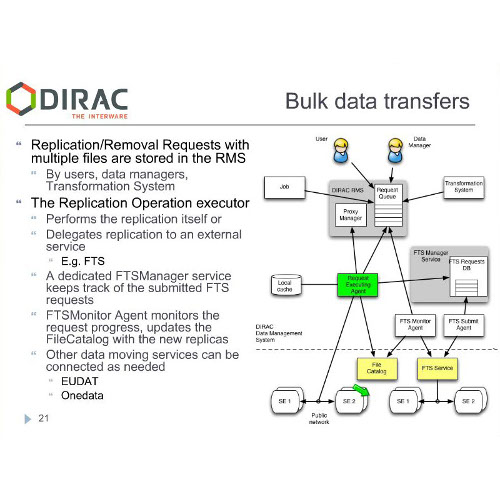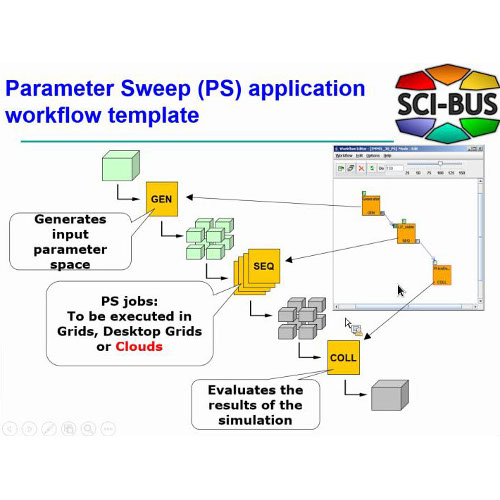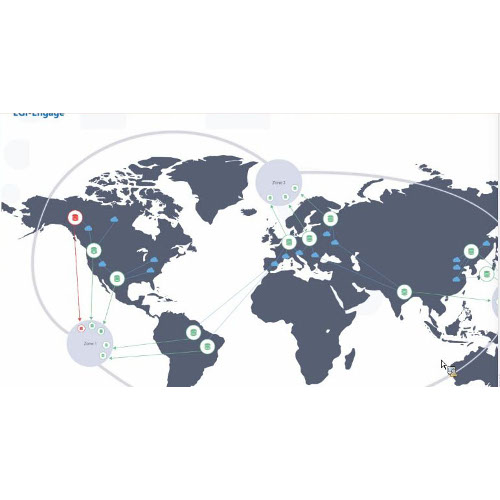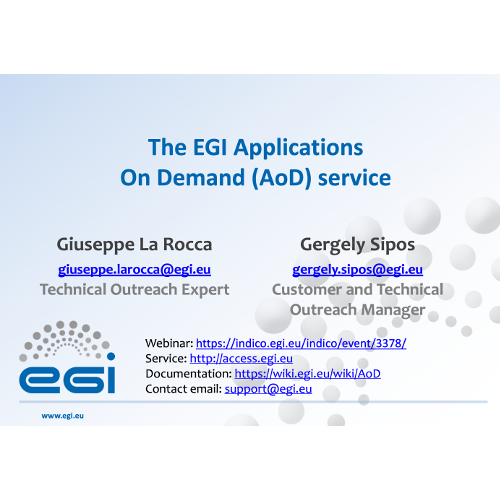The EGI Applications Database (AppDB) was recently expanded with the Virtual Machine Operations (VMOps) dashboard. The VMOps dashboard provides graphical interfaces and high-level services for users to manage Virtual Machines and Virtualised Appliances on federated cloud infrastructures, particularly on the EGI Federated Cloud and community-specific cloud federations, for example the ELIXIR Competence Centre Cloud Federation.
The EGI Federated Cloud is a seamless network of academic private clouds and virtualised resources, built around open standards and focusing on the requirements of the scientific community. Access to this infrastructure was until now possible via programming APIs and command line interfaces. The VMOps dashboard, the topic of this webinar, recently extended the possibilities with a graphical portal interface, significantly reducing the burden to manage virtualised resources in federated clouds.
This webinar will introduce the key capabilities of the VMOps dashboard, particularly:
- A wizard-like builder that guides users through the selection of virtual machine images, virtual appliances, cloud resources and contextualization scripts to deploy complex applications or services in federated clouds.
- Graphical interfaces and tools to monitor and manage your applications/services in federated clouds, independently of underlying cloud technologies.
- A scalable architecture composed of a generic front-end and several, technology-specific back-ends for load balancing, and with a RESTful API to integrate with 3rd party services.
The EGI Applications Database is developed and operated by the Institute of Accelerating Systems and Applications (IASA) on behalf of the EGI Foundation as an EGI Core Service.

To meet
customer needs and provide valuable services, it is important to
maintain a high quality of service, which requires a well-structured
approach to how the service is managed. IT Service Management is a discipline that
helps provide services with a focus on customer needs and in a
professional manner. It is widely used in the commercial and public
sectors to manage IT services of all types, but current solutions are
very heavyweight with high barriers to entry. Existing approaches to formal IT Service Management (ITSM), such as ITIL and the ISO/IEC 20000
standard are useful but not always well suited to the challenges of
providing distributed services, especially federated environments, and
can often be seen as overly complex. This one hour webinar will provide a clear-cut view of how service management, and the lightweight approach provided by the FitSM standard which is suitable for distributed, federated and research services. FitSM is a lightweight approach to
professionally managing services. It brings order and traceability to a
complex area and provides simple, practical support in getting started
with ITSM. FitSM training and certification provide crucial help in
providing services and improving their management. It provides a common
conceptual and process model, sets out straightforward and realistic
requirements and links them to supporting materials. This webinar will have a large discussion
element of how FitSM applies to research infrastructures, including how
the principles and lessons learned could apply to research
infrastructures that provide services requiring physical access.
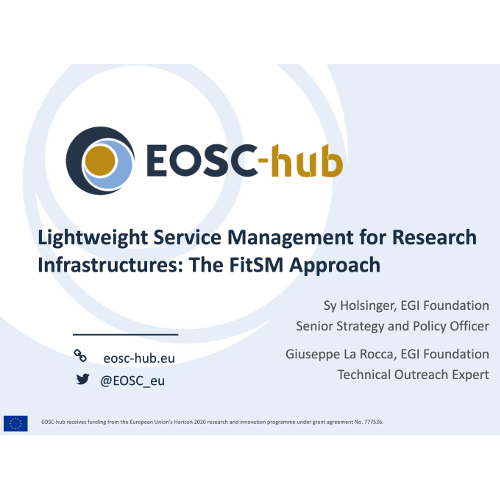
DIRAC Project is providing a framework for building distributed computing systems and applications with high computating and storage/data demands. Services based on this framework are available for the EGI users since 2014 (at http://dirac.egi.eu/). during the webinar the main capabilities of the system will be introduced and demonstrated.
The DIRAC4EGI service includes a powerful Workload and Data Management System that is able to handle user payloads running on any EGI grid and cloud resource, as well as on other computing resources (such as institutional clusters). The key capabilities of the system are:
The DIRAC job scheduler uses the "pilot job" paradigm which ensures high efficiency and fast turn-around of user tasks both on local and on remote computers.
The versatile File Catalog component keeps track of file locations and replicas and allows the description of data with user defined metadata for efficient data searches.
Services are accessible with friendly user interfaces: a Web Portal, a rich set of command line tools and a Python API. Through these interfaces the user can ineract with distributed resources as they were a single large computer.
A RESTful service interface is also available for the use by existing application gateways and portals.
The Webinar event is open for anyone. Registration is not required, but recommended prior to the event. (Using the 'Apply here' link below)
Webinar connection link: http://connect.ct.infn.it/egi-inspire-jra1
